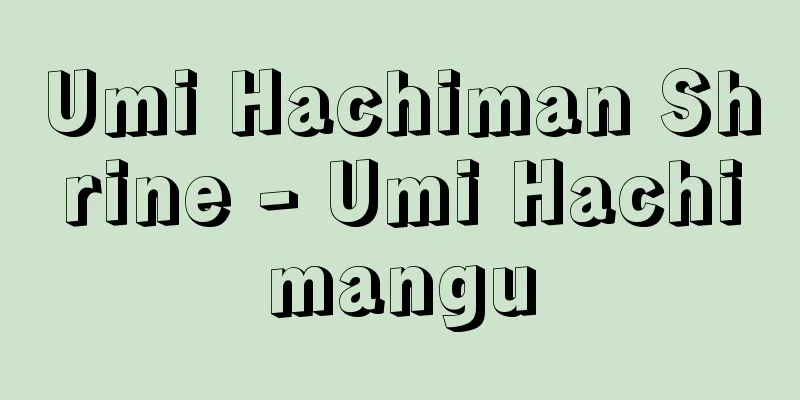Emperor Daoguang

|
The 8th emperor of the Qing Dynasty of China (reigned 1820-50). His given name was Minning. His posthumous name was Chengdi. His temple name was Xuanzong. He is known as Emperor Daoguang depending on the era name. He was the second son of Emperor Jiaqing, and his birth mother was Hitara. He defeated the Tenrikyo sect's invasion of the Forbidden City in 1813 and became King Zhishun. After ascending to the throne, he tried to restore the country's impoverished finances by encouraging mining development, but years of economic hardship and the opium trade with Britain led to a trade deficit with Canton in 1826, and silver began to flow out of China. This caused the value of silver compared to copper coins, which were in daily use, to soar, and farmers, who were required to pay taxes in silver, fell into further poverty, which also affected national revenues. The Qing dynasty banned the opium trade, but the British government, merchants, and local traders demanded free trade and official recognition of opium, and the ban was ineffective. In 1839, Lin Zexu confiscated opium, which led to the outbreak of the Opium Wars in 1840, and the British Navy occupied various parts of China. As a result, the Treaty of Nanking was ratified in 1842, and the Qing dynasty opened up to the world, but this was the first step in the colonization of China. Furthermore, increasing social unrest led to an uprising by the Taiping Heavenly Kingdom army in the final years of the Daoguang reign. [Yoshio Hosoya] Source: Shogakukan Encyclopedia Nipponica About Encyclopedia Nipponica Information | Legend |
|
中国、清(しん)朝第8代の皇帝(在位1820~50)。名は旻寧(びんねい)。諡(おくりな)は成帝。廟号(びょうごう)は宣宗。年号によって道光帝とよばれる。嘉慶(かけい)帝の第2子で、生母は喜塔臘(ヒタラ)氏。1813年の天理教徒の紫禁城侵入を破り智順王になった。即位ののち、鉱山開発の奨励など、窮乏した財政の立て直しに努力したが、積年の経済窮乏とイギリスとのアヘン貿易により26年に広東(カントン)貿易が入超となり、中国から銀が流出し始めたため、日常通用の銅銭との比価が高騰し、税の銀納を義務づけられていた農民はますます困窮し、国庫収入にも影響を与えた。清朝はアヘン貿易を禁止したが、イギリス政府、商人、地方貿易商らは自由貿易とアヘンの公認を求め、禁止令は実効がなかった。39年に林則徐(りんそくじょ)がアヘン没収を行ったことから40年にアヘン戦争が勃発(ぼっぱつ)、イギリス海軍が中国各地を占領した。この結果、42年南京(ナンキン)条約が批准されて清朝は開国するに至ったが、これが中国の植民地化の第一歩となった。また、社会不安の増大は、道光末年からの太平天国軍の蜂起(ほうき)を引き起こした。 [細谷良夫] 出典 小学館 日本大百科全書(ニッポニカ)日本大百科全書(ニッポニカ)について 情報 | 凡例 |
Recommend
Temple Law - Jiinhatto
First, over a period of 15 years from 1601 (Keich...
Actinium emanation
…A gaseous radioactive nuclide belonging to the a...
Kim Dae-jung
South Korean politician and 15th president. Born ...
Killer whale (orchid)
A mammal of the family Delphinidae in the suborder...
Polypodium fauriei Christ
A perennial epiphytic fern of the Polypodiaceae fa...
Loire, Val de (English spelling) LoireValde
…[Yugo Ono]. . … *Some of the terminology that me...
Kinko - Kinko
A marine animal belonging to the phylum Echinoder...
Mahakaccana (English spelling)
…He is a different person from Purāṇa, who was no...
Northeast Anti-Japanese United Army (English: Northeast Anti-Japanese United Army)
An anti-Japanese guerrilla army organized in North...
"Kikuchi Otomo's Sleeve Mirror"
...The "Seigen Anshitsu" that has been ...
Public assistance - Seikatsuhogo (English spelling)
Based on the principles of Article 25 of the Japa...
Ceratium hirundinella (English spelling) Ceratium hirundinella
...This species lives in plankton and is normally...
Old English sheepdog (species)
A sheepdog (illustration) originating from England...
Islamic pottery
…Islamic art refers to the architecture, painting...
Méhul, Étienne-Nicolas
Born: June 22, 1763, Givet, Ardennes [Died] Octobe...









